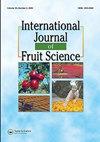埃塞俄比亚南部加莫地区芒果收获后价值链损失评估
IF 2.5
3区 农林科学
Q2 HORTICULTURE
引用次数: 4
摘要
尽管加莫区是埃塞俄比亚一个普遍的芒果产区,但缺乏对芒果价值链上收获后损失的全面研究,阻碍了相关利益相关者认识到收获后损失问题的社会经济、营养和环境意义。改进收获后处理方法不仅可以通过减少收获后损失来增加产量,还可以通过价格调整来增加市场上的粮食获取。因此,本研究旨在评估芒果价值链上的收获后损失以及行为者和利益相关者在这一过程中面临的挑战。为此,通过多阶段抽样程序选择了120个芒果生产商。分析结果表明,芒果产量低的主要原因是地方品种的使用、病虫害和采收技术的改良不足。结果还表明,研究区约41%的芒果损失是由于缺乏改进的收获机制和病虫害感染以及运输机制不完善所致。从这一损失中,收获阶段在芒果价值链上占有最大份额(18%)。此外,缺乏芒果改良品种,缺乏合作和批发营销以及缺乏增值实践是研究地区发现的主要问题。研究区域的芒果产量也有巨大损失,需要相关利益相关者立即干预。建议通过种苗配种推广良种,改良现有采收材料,引进改良采收技术,加强合作营销,支持加工替代产品开发。本文章由计算机程序翻译,如有差异,请以英文原文为准。
Assessment of Mango Post-Harvest Losses along Value Chain in the Gamo Zone, Southern Ethiopia
ABSTRACT Even though the Gamo zone is a prevalent mango producing area in Ethiopia, the lack of comprehensive post-harvest loss research along the mango value chain prevents respective stakeholders from recognizing the socioeconomic, nutritional and environmental significance of the post-harvest loss problem. Improving the post-harvesting handling practice not only increases the production by reduction of post-harvest loss but also increases food access at the market level with prices adjustment. Therefore, this study was intended to assess the post-harvest loss along the mango value chain and the challenges that actors and stakeholders face in the process. To do this, 120 mango producers were selected following a multistage sampling procedure. The analysis result shows that the main reasons for the low productivity of mango are the use of the local variety, disease and insect pests and lack of improved harvesting technologies. The result also shows about 41% of mango loss in the study area was due to a lack of improved harvesting mechanism and infection by disease and pests and poor transportation mechanisms. From this loss, the harvesting stage shares the largest share (18%) along the mango value chain. In addition, lack of improved mango varieties, lack of cooperative and wholesale marketing and lack of value addition practice are the major identified problems in the study area. There is also a huge loss of mango production in the study area that needs immediate intervention from respective stakeholders. Thus, dissemination of improved varieties through the distribution of seedlings, modifying the existing harvesting materials and introduction of improved harvesting technologies, strengthening the cooperative marketing and supporting alternative products development through processing was suggested.
求助全文
通过发布文献求助,成功后即可免费获取论文全文。
去求助
来源期刊

International Journal of Fruit Science
Agricultural and Biological Sciences-Agronomy and Crop Science
CiteScore
6.40
自引率
0.00%
发文量
64
审稿时长
10 weeks
期刊介绍:
The International Journal of Fruit Science disseminates results of current research that are immediately applicable to the grower, extension agent, and educator in a useful, legitimate, and scientific format. The focus of the journal is on new technologies and innovative approaches to the management and marketing of all types of fruits. It provides practical and fundamental information necessary for the superior growth and quality of fruit crops.
This journal examines fruit growing from a wide range of aspects, including:
-genetics and breeding
-pruning and training
-entomology, plant pathology, and weed science
-physiology and cultural practices
-marketing and economics
-fruit production, harvesting, and postharvest
 求助内容:
求助内容: 应助结果提醒方式:
应助结果提醒方式:


